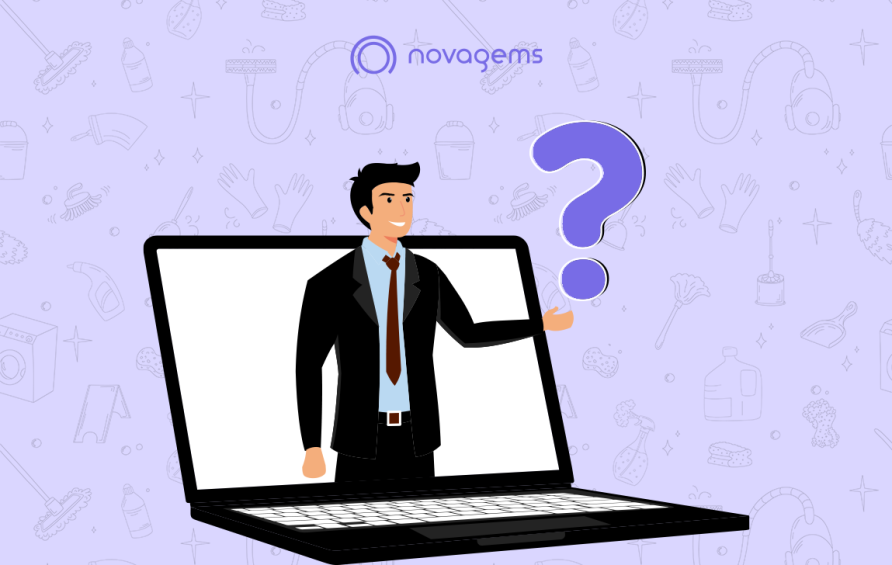10 Best Practices To Raise Aviation Security Services Standards In 2023
Sat, Feb 27, 2021
Read in 9 minutes
Aviation security services must be highly efficient. Using feature-rich Aviation Security Management system can help raise security standards.software helps bring 100% results.
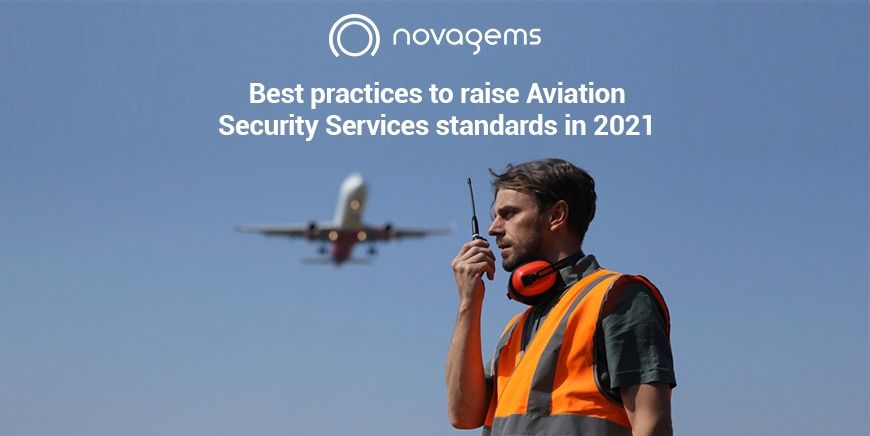
Mistakes are inevitable in aviation. Whether you are the pilot or a staff member at the ground, you contribute to the success and safety.
On-site security is critical for Airports and the aviation industry. With flight schedules becoming busier and more and more passengers choosing air travel for their commute, there is a significant rise in regulations and threats. This poses a constant challenge for aviation security service companies to enhance their efficiency and accuracy of security operations.
The spike in customer demands and expectations also has put a lot of pressure on the Aviation businesses which is gradually passed on to the aviation security services providers. Airport security operations are more transparent than ever and quality and accuracy are the core requirements. This proves just how important it is to have highly efficient, effective, and professional operations and customer service.
The third component of the rising complications in the Aviation Security sector is the mounting competition in the market. As the business of aviation companies grows, the need for security rises simultaneously. This gives a perfect opportunity to security companies to expand and make profits from the business opportunity. To fight this competition and lead the market, one needs to get equipped with modern tools, knowledge, and features.
So, how do you enhance the quality of your Aviation Security Services? Well, this post serves as a comprehensive guide to efficient Aviation Security Services. You will learn about the risk factors of the aviation industry, the importance of Aviation Security strategy and how to plan one, features that allow Aviation Security companies to offer uncompromised services, as well as the need for continuous evaluation and updates in the security protocols.
Let us get started and understand everything about Aviation Security in detail.
- Key risk factors affecting the Aviation Industry & Aviation security services
- Need for advanced Aviation Security Management
- Key security features to boost Aviation Security Business
- Maintaining the security standards high
- How to improve Airport Security - Final Takeaway!
1. Key Risk Factors Affecting The Aviation Industry & Aviation Security Services”
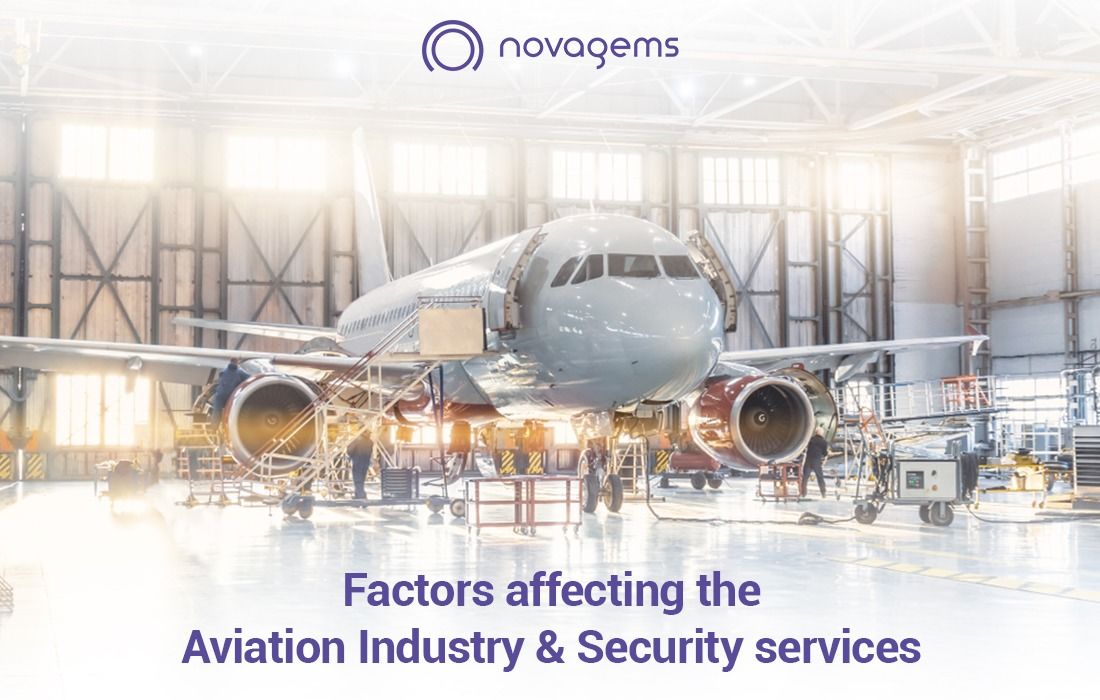
Airports, airlines, cargo, and all aviation-related businesses are exposed to several risks and it is important to understand these threats to effectively design a security strategy.
- Competition in the domestic and international market: The pandemic has broken the backbone of the aviation industry. However, as the virus is much under control now, the aviation industry is building new roots. Even new players are entering the market making it denser than before. Offering safe, customer-friendly, and cost-effective services is the best way to beat the slit-throat competition. No doubt aviation businesses need credible security service providers who can maintain flawless security standards at airports. Align security practices with international standards and best practices set by organizations such as the International Civil Aviation Organization (ICAO) and the Transportation Security Administration (TSA). Stay informed about updates and changes to these standards and implement them accordingly.
- Compliance with regulation and restriction bodies: There is a long list of regulations and restrictions that any business operating in the commercial aerospace industry has to comply with. Right from aircraft design to pilot training, maintenance to security and safety regulations, there is an endless list of crucial checkpoints. Modern Aviation Security Services providers use a Security guard system that makes compliance an easy deal.
- Exposure to a range of threats: Air space is one of the common targets of terrorists, robbers, smugglers, and other wide range of criminals. As the type and nature of crimes become scarier, the need for top-notch security has advanced. A reliable aviation business needs nothing but the most dedicated aviation security service provider to handle their security requirements. The best companies use innovative tools, state-of-the-art technology, and professional security staff to offer error-free services.
2. Need For Advanced Aviation Security Management
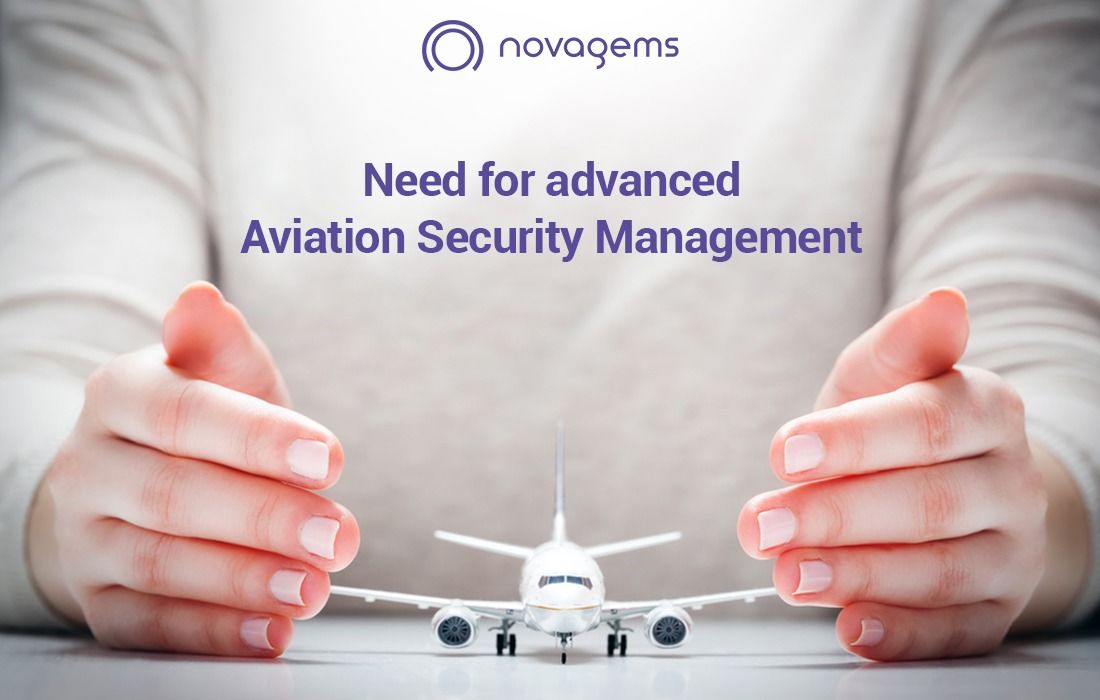
Different regulatory bodies control the aviation industry but private security companies have their role to play. Private security companies are responsible for implementing the screening systems and ensuring effective security.
Private aviation security companies must offer customized security services to their clients. A security strategy must be designed and implemented on the airports as well as other aviation-related businesses. Here are some of the core points of considerations:
a. Conducting security audit The design of a security strategy must be based on the findings of a security audit. A security audit will help aviation security officers to understand what works and what does not. The audit will answer a crucial question- ‘How can airport security be improved?
The key aspects of the audit must include:
- A thorough assessment of the facility and grounds
- Analysis of the technology being used of identifying the scope for Aviation Security Software
- Evaluating existing security procedure and scope for changes
Aviation Security Services providers must know how to perform a detailed audit.
b. Engaging trained Security Guards If you aim to be the best aviation security business, you must provide regular training to your security guards. High-quality training programs allow security guards to brush their knowledge and gain a better insight into the services and their protocols. Customized training befits the security guards with abilities to assess risks, learn the use of security devices, and a better understanding of Aviation Security Management.
c. Implementing Patrol Guards It is crucial to safeguard the perimeter of the facility. Just like you have dedicated security guards to keep the internal area of the facility safe, trained and qualified patrol guards must be appointed at patrol duty. Using an advanced Aviation Security Management system for tracking and monitoring payroll guards’ movement and managing security.
Mobile security is an affordable way to safeguard the premises. Moreover, the security guards on mobile duty are always on the move which means they can easily step into action.
d. Consider adding pre-security checkpoints While screening lanes are crucial, it is important to add security checkpoints for the customers before they hit the screening lanes. The security checkpoints must not only cover passengers but also include those on the outside and employees.
3. Key Security Features To Boost Aviation Security Business
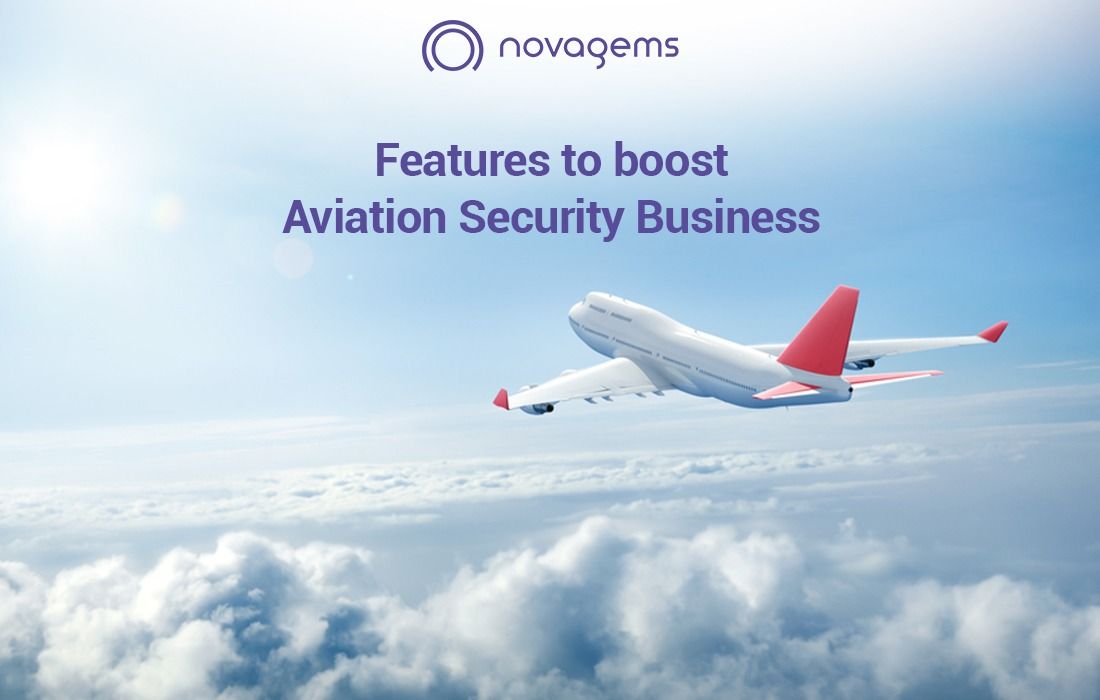
If you want to enhance your operational efficiency, using Aviation Security Software is recommended. Here are the core features of an efficient security management system that will help you achieve your operational goals.
- Emphasize checkpoints and lane management
The aviation industry is exposed to publish and every day hundreds and thousands of travelers enjoy safe air travel. To ensure that the journey is safe for the passengers from start to end, it is important to level up the security at the checkpoints, maintain high levels of x-ray checks and also boost lane management.
Using a security management system for enhanced security will serve a lot of purposes. The software will keep a check on the x-ray operators, ensuring that they are fulfilling their duties. With all checkpoints connected with software, it is also easy to manage everything from a central position.
- Utilize Live tracking and incident management
We have already mentioned the importance of security guards and patrol guards for the Aviation Industry. It is essential to have strong security provisions at the airport to ensure top-notch security and a sense of safety in all the people using the airports.
The GPS tracking and Incident Management System enhances the accuracy of the operations. The location of the security guards can be checked at any given time. Also, the guards can report any incident to the supervisors who in—turn can dispatch guards to handle the emergency.
- Focus on training
It is imperative to keep the security guards up-to-date. Regular training should be scheduled for all the security personnel as well as other staff members of the facility. This will make the staff knowledgeable and skilled to carry out their duties with efficiency.
- Perform On-site Inspection
Frequent inspections on the work site ensure that the guards are alert at all times. The security guards are responsible for a range of safety protocols and must be trained for them. From checking the passengers at the checkpoint to x-ray scanning of the luggage and finally helping the passengers in taking care of queries, complaints and emergencies are some of the core tasks that security guards perform. Regular review will help maintain the performance of the security guards and make them more accountable.
4. Maintaining The Security Standards High
Implementing high-security measures, training security guards for their duty, and performing quality checks should be a continuous exercise. It is imperative for the Aviation Security Services provider to ensure regular evaluation of the security operations and strategy and make necessary changes. A strong reporting structure, as well as data collection methods, can aid in the endeavor. Modern Aviation Security Software has customized reports templates and on-cloud data storage features which makes data analysis easy and accurate. Reviewing the security videotapes and re-evaluating the incident reports will help tweak the security strategy.
5. Regular Training And Education
Invest in comprehensive training programs for aviation security management to enhance their knowledge and skills. Stay updated with the latest security protocols, technological advancements, and industry regulations. Continuous education ensures that security staff are well-prepared to handle evolving security threats effectively.
6. Collaboration And Information Sharing
Foster strong partnerships and collaboration between aviation security services, including airports, airlines, government agencies, and law enforcement. Share intelligence, best practices, and lessons learned to improve overall security effectiveness. Collaborative efforts enhance situational awareness and enable a coordinated response to security challenges.
7. Embrace Technology
Leverage technological advancements to streamline security processes and enhance efficiency. Implement automated identity verification systems, biometric solutions, and artificial intelligence-based analytics for threat detection. Explore the use of data analytics to identify patterns and potential risks, enabling proactive security measures. Keep updates on the new technologies in the market to improve your airport security services.
8. Customer Experience Focus
While ensuring stringent security measures, prioritize passenger experience. Strive to minimize inconvenience and waiting times through efficient processes and clear communication. Invest in customer service training for security staff to ensure a friendly and professional approach. This approach will not only make you the best in the market but favorite amongst the customers too. Security management system in aviation is getting more and more popular day by day. Maybe think about investing in one.
9. Continuous Evaluation And Improvement
Establish a robust system for monitoring and evaluating security performance. Conduct regular audits, assessments, and drills to identify areas for improvement. Analyze security incidents and near misses to learn from them and enhance security protocols accordingly. Once you are on the path of improvement you will not have to search for “how to improve airport security” on Google.
10. How to improve Airport Security - Final Takeaway!”
Aviation security companies face many big challenges. It is crucial to learn how to improve airport security and ensure 100% results. An effective aviation security strategy can prove the vital approach for uncompromised security provisions at airports, cargo, warehouses, and other aviation-related businesses. Using a security management system boosts the efficiency of Aviation Security Management and helps security companies deliver uncompromised safety and security to aviation businesses.
Get a Free Trial
Sign up For Newsletter
Latest Blog Posts
Get Started
Start being productive & grow your business
with Novagems


